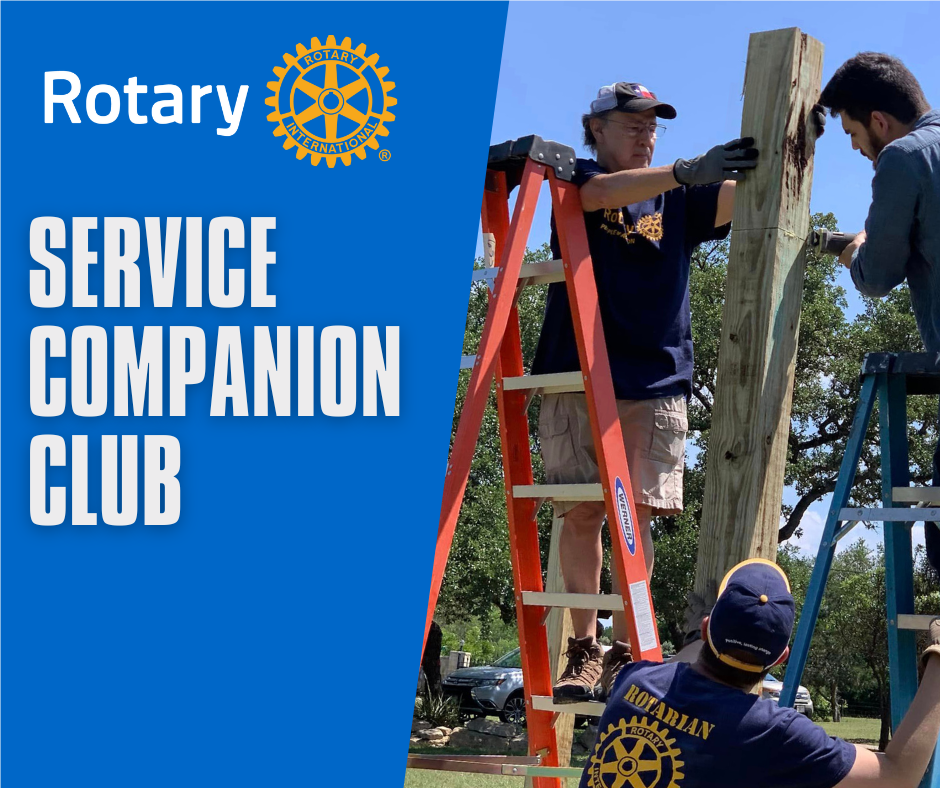
Does Your Rotary Club Need a Boost? Ask yourself the following questions: Is your Rotary Club seeking more members? Would you like to involve the club in more service projects? Are you looking to diversify your membership base? If you've answered "YES" to any of these questions, it's time you considered the creation of a Service Companion Club.
What is a Service Companion Club?
Contrary to common misunderstanding, a Service Companion Club is not an independent entity but an extension or satellite club of an existing Rotary Club. It operates under the umbrella of its Host Club but with a focus on community service, offering more flexibility than traditional Rotary settings. Notably, "Service Companion" is a model and should not be used as the club's name.
What's the Purpose?
The primary focus of a Service Companion Club is community service. This model offers an alternative membership route for individuals who cannot attend regular Rotary meetings. By doing away with standard meeting obligations, the Service Companion Club adopts an inclusive approach to impacting communities positively.
How Do They Operate?
The club members meet to plan and execute service projects, either in person or via platforms like Zoom, Microsoft Teams, or WhatsApp. While optional, members can also attend meetings of their Host Club. Despite its separate operational structure, the Service Companion Club is considered a Rotary International Satellite Club of the Host Club, and members pay a nominal annual fee of $200, covering international and district dues as well as basic expenses.
Who Holds the Reins?
Decision-making within the Service Companion Club lies with its Board of Directors, which operates independently but often includes representation from the Host Club. The club can either adopt its Host Club's bylaws with modifications or create its own.
Service Projects
The Service Companion Club has autonomy in designing its service projects, but it also supports initiatives hosted by their Host Club and other Rotary Clubs. In essence, it acts as a force multiplier for service in the community.
Are Members Considered Rotarians?
Yes, members are considered part of the Host Club, even having "Active" status as Satellite Club members on MyRotary.org. They also have access to club management systems like ClubRunner and DACdb, just like their counterparts in the Host Club.
Organization and Leadership
Board of Directors: Headed by a Chairperson, usually a member of the Host Club's board, the Service Companion Club has its own governing body.
Committees: Committees for Service Projects, Membership, Club Administration, Public Image, and The Rotary Foundation are encouraged. Clubs can also establish a Diversity, Equity, Inclusion committee.
Secretary & Treasurer: These roles manage administrative tasks and financial aspects, ensuring smooth coordination with the Host Club.
The Bottom Line
With a Service Companion Club, you are one club meeting at two different times, increasing membership diversity and providing more opportunities for community service. Whether your members are young professionals, working mothers, or those with changing work responsibilities, this model offers a flexible pathway to service.
For more information or to kickstart your own Service Companion Club
- Read the latest article from Rotary International: Service Companion Club Grows Membership
- Register or watch the recording of the September 19th @6pm Membership Webinar with Rotary International President-Elect Stephanie Urchick as special guest: Register Here
- Contact your District Membership Chair today.